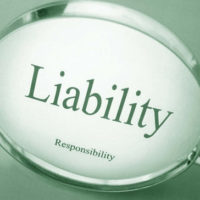Categories of Guests In Premises Liability Law

Premises liability is the area of law that governs injuries and accidents on other people’s property, and the duty of care that the landowners have to those who do come there. At common law, there are three different categories of guests, each of which are owed a different duty of care by the landowner or business owner. Some states have abolished these distinctions, but as of this writing, Florida still utilizes them, meaning that depending which category a plaintiff falls into, they may be owed a different duty of care.
Invitees – Invitees, both business and public, are offered the greatest degree of protection in Florida premises liability. Business invitees are those who come onto property in order to conduct some sort of business – for example, theme park patrons or a customer at a department store – while public invitees are people who have no real business purposes on land, but since it is open to the public, they may enter. Obviously, this classification does not apply if the property in question is not open to the public.
Landowners have a fairly strict duty to these people – by law, they have a duty to correct or warn invitees of any known dangers (or dangers that the landowner should know of, if they exercise reasonable care), and they must also maintain the premises in a ‘reasonably safe’ condition. This also includes taking steps to safeguard against foreseeable types of crimes – for example, muggings in commercial shopping areas, or pickpocketing in theme park crowds.
Licensees – Licensees are subdivided into invited and uninvited, with invited licensees being those who are on the property with the literal invitation of the landowner, and thus owed the same degree of protection as invitees, because the landowner expressly invited the person’s presence on their property. Uninvited licensees, by comparison, are generally only tolerated. An example might be a door-to-door salesman, or a child coming into a yard to retrieve a ball or other toy. The duty owed to uninvited licensees is merely to refrain from harming them “willfully [or] wantonly,” rather than any affirmative obligation.
Trespassers – The definition of a trespasser is fairly self-explanatory, referring to a person present on another’s land without permission. The only duty that a landowner owes to an adult trespasser is to refrain from intentionally, maliciously, or negligently causing them harm. However, if the trespasser is a child, liability may still exist because children are presumed to be ignorant of the dangers of certain conditions. Florida law recognizes an exception to premises liability law called the attractive nuisance doctrine, which holds that if there is a condition on a person’s land that might conceivably attract young children and it is not appropriately maintained or warned about, a landowner may be held liable for any injury that a child may sustain.
Seek Experienced Legal Help
Depending on which group you fall into, the duty of care owed to you on someone else’s land may make a difference in whether or not you are able to bring a successful action for the harm you have suffered. Speaking to a knowledgeable attorney can be a big help in determining how best to attack the problem. The Tampa premises liability attorneys at the Rinaldo Law Group can sit down with you to answer any questions and help you determine the best course of action for you and your family. Call us today to schedule an appointment.
Resource:
scholar.google.com/scholar_case?case=16717770360856545385&hl=en&as_sdt=6&as_vis=1&oi=scholarr
